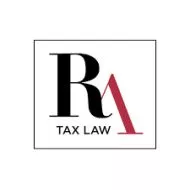Has your employer offered you a Retirement Compensation Arrangement? Are you a business owner considering methods of supplementing your employees' RRSPs or RPPs? Are you curious as to retirement planning options outside of an RRSP or RPP? Read on to learn more about the Retirement Compensation Arrangement.
What is a Retirement Compensation Arrangement?
A Retirement Compensation Arrangement, or RCA for short, is an arrangement in which employees and employers make contributions to a plan managed by a custodian, or someone who manages the fund. An RCA can then be paid out in the event of an employee's retirement, unemployment, or even a substantial change in the services provided by the employee. An RCA can even be used in conjunction with an RRSP or RPP, providing those employees with more means when they reach retirement.
When an employer contributes to an RCA, the contribution is subject to a 50% refundable tax. When making that contribution, 100% will be deductible, if the contribution is considered to be “reasonable”. While the word reasonable may appear to be somewhat ambiguous, contributions are generally considered reasonable if “they are equal to or less than the benefit that would be appropriate for the employee's salary, position, and services provided”.1 Employees benefitting from an RCA, however, are not taxed until distributions are made.
Advantages
There are several advantages to an RCA, just a few of which are listed below.
One of the chief advantages of an RCA is its flexibility. Unlike
an RRSP or an RPP, an RCA is
not subject to any similar contribution limits, its only limit
being as mentioned previously, that any contributions made must be
reasonable. RCAs also have the benefit of not limiting the RPP
contribution or RRSP contribution room.
An RCA can also pose advantages for a business. An RCA can act as an incentive for long-term employees and high-level, high-value senior executives to remain with a given employer, a benefit for both employee and employer.
Finally, an RCA used as a supplemental pension can potentially provide high-income earners with the comfort of knowing they will be able to maintain their current lifestyles when they leave the workforce to enjoy their retirement. As contributions to an RCA by an employee are not taxable until paid out of the RCA, the employee may at the time of retirement be able to take advantage of being in a lower tax bracket.
Disadvantages
Being subject to that 50% refundable tax does mean that there is less money available in an RCA for investment.
An RCA is also subject to ongoing maintenance and fees. Alongside the inevitable start-up fees and costs of ongoing administration, the custodian of an RCA will need to file a T3-RCA tax return every year, regardless of whether or not there has been any activity in the RCA.
The involvement of the RCA custodian, who is responsible for the management of the trust, also means that employees and employers will not have direct control over the funds contained in the RCA.
Final Remarks
While diving into the minutiae of an RCA is likely beyond the scope of this post, ideally the brief overview above, coupled with some of the advantages and disadvantages inherent in such a plan will provide a basis from which those who are interested can begin to learn more. Retirement Compensation Arrangements are plans that can provide comfort, protection, and confidence for you and your loved ones as you explore new employment opportunities or look to begin enjoying retirement. The benefit of that cannot be understated.
Footnote
1.
https://www.bccpa.ca/news-views-kb/news-views-kb-entries/taxation/taxation/articles/understanding-the-
retirement-compensation-arrangement/
Originally published 22 September 2023
The content of this article is intended to provide a general guide to the subject matter. Specialist advice should be sought about your specific circumstances.


